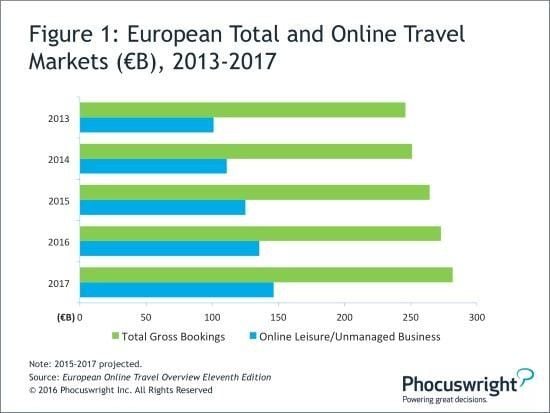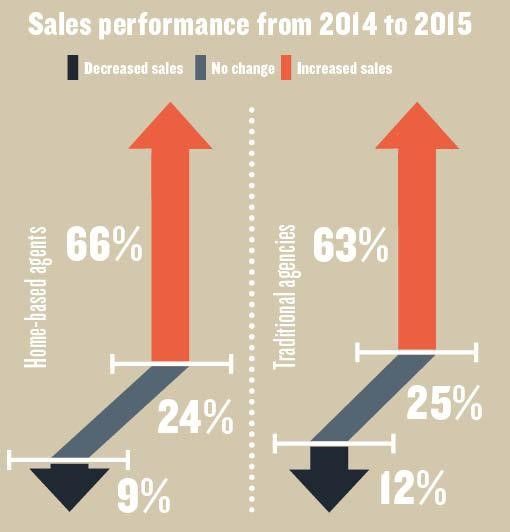Top stories






More news





ESG & Sustainability
#Sona2026: President announces crisis committee to tackle SA's water challenges









While there is continued growth in online bookings, the market has matured, and the hype has passed. In fact, there is a clear trend of specific market niches returning to traditional travel agents, or as 31% of these service providers prefer to be called, travel specialists, with the majority witnessing increased revenues in the past years, according to Travel Weekly's 2016 Travel Industry Survey. Industry reports quoted by the US Bureau of Consular Affairs, US Department of State, have found that 20% of US travelers chose to use travel agents in 2016.

The travel agents market has metamorphosed as well. Whereas in the past they suffered from a serious conflict of interest between creating the optimal trip for their customers while maximising their suppliers' revenues, today travel agents are much more customer centric. Agents understand that if they cannot provide advantageous services to their customers, they will easily find another option more suited to their preferences.
Whereas the typical traveller will have to spend hours researching destinations, accommodations, travel arrangements, and attractions, travel agents can specialise in niche markets or niche travel destinations, creating a database of suppliers to suit their clients’ needs. Travel agents who specialise in specific types of trips or in a particular market segment can provide their clientele with expertise in the types of trips they are looking for.
Specific market segments lend themselves to travel agents. According to MMGY Global’s 2016 Portrait of American Travelers, 34% of millennials prefer to use an agent to plan their trips. As a group, this demographic is interested in memorable trips and experiences, and they realise that niche-specialising agents can provide the experiences they crave.
Corporate travellers, who have very specific requests for their accommodations in terms of location and amenities, also show a preference for travel agents. The $1.2 trillion market offers a huge opportunity to agents who can provide the level of service these travellers desire. Agents, with their base of suppliers, can furnish perks for their customers, and most importantly, be there in case of emergency, making alternate travel arrangements if/when something goes wrong. These travellers are often interested in adding a few days of leisure to their travels (“bleisure”), and a seasoned travel agent can plan their trips best while saving them time, money and hassle.
Another market segment that prefers travel agents are luxury travellers, who want tried and tested accommodations and service. They do not want to waste their time scouring the internet, and they definitely do not want to take a chance on a less than perfect experience. Travel agents can create high-end travel packages for these travellers, enjoying the perks of serving this fastest growing market segment.
Additional markets in which agents can specialise include family travel, adventure tourism, ecotourism, the mature market, travel for the disabled, or solo travel.

Undoubtedly, one of the advantages to using OTAs is their “anywhere, anytime” approach. Customers can plan and book trips with very little hassle. Travel agents, who integrate online payment processing, can offer this level of convenience to their customers as well. Online payment service providers allow end users to make payments using any of a number of payment methods, from credit cards to e-wallets and mobile payments. Today’s payment service providers offer the option to pay for services in various currencies, thereby ensuring flexibility to international travellers or global corporations.
By incorporating online payment options, travel agents provide the secure and simple payment experience today’s traveler expects.
With the shift from travel agents to travel specialists, agents must ensure that they have access to leading accommodations and services within every international locale they offer. In-depth knowledge of different destinations can be achieved by traveling to the specific location in order to become familiarised with different travel options, or by partnering with a local expert.
Travel agents should identify partners, through which they can grow their reach, both in terms of geographic destinations and travel options within the destinations they offer. Partnerships with international service providers expand the portfolio of services travel agents can offer their clientele. Partnerships with international travel agents can improve the level of service agents provide by utilising the partner’s inner knowledge of his country and local contacts.
Finally, a meaningful relationship with international travel agents could increase each party’s customer base, via a referral based partnership.
For a new travel agent, the option of adding access to OTA sites via an affiliate programme can be tempting. These sites offer a commission on bookings which originate via their affiliates. Booking.com, for instance, pays a 25-40% commission on the 10-30% it receives, to its affiliate partners, for an average of 6.5% of the booking value to its affiliates.
However, as OTAs are the culprit behind the demise of the traditional travel agent market, partnering with them is clearly counterintuitive. Travel agents interested in offering online booking options to their website visitors can integrate a Global Distribution System (GDS). Agents typically use these systems themselves for data on inventory and to book travel arrangements for their clients, and these GDS providers generally pay the agents a commission on these bookings. Incorporating an online booking system based on a GDS would increase commissions from this channel without further empowering the agents’ key competitors.
Travel agents with in-depth market knowledge, who integrate GDS systems on their websites, along with online payment options, can offer a comparable alternative to OTAs, with the added benefit of a personalised touch and consultation for their clientele.